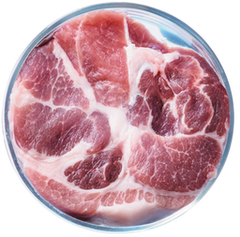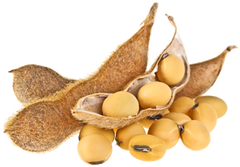Panel discussion on...
Alternative proteins
Alternative proteins are a path, not an objective
As of today, despite a recent surge in price, food is largely available. Current food is diversified and there is some evolution in what is offered to consumers. Plant-based food is one of these food categories that has been raising significantly in terms of sales and media scrutiny, even if it is still a small part of overall food production. This plant-based food can be seen as an alternative to animal-based food. Milk, meat or egg-based products have substitutes providing partially or in full similar nutrition and/or convenience. Consumers are either strict in their food choices (vegan, vegetarian) or rebalance their food intake between animal and non animal-based foods (flexitarian). Protein is one key nutrient on which the focus is made, with the aim to have a relevant alternative to animal proteins.
Understanding consumers’ expectations is key to offering them something relevant. A multiyear Innova consumer study helps us to understand consumer expectations over time. Let’s deep dive on what is expected and how a protein ingredient contributes to this evolution.
There are good reasons to go for this new type of food
Healthier
New products created can right from the beginning avoid some unwanted compounds like saturated fats or cholesterol and be richer in fiber. This all depends on formulation chosen, so is product dependent.
More sustainable
This expectation is likely the one that has grown the most in the last two years. Climate change is more communicated.
As highlighted by a recent BCG report, the move to plant protein food is a key enabler to reduce carbon impact. On this sensitive topic, key data obtained with the right methodology to obtain LCA (life cycle assessment) are needed. This is the only way to be fact based on this complex topic. In addition to numbers, consumers value also the real story of where their food is coming from. We see with our pea protein offer some clear demands of local origin (raw material and transformation). This is as important as an LCA value.
There are meaningful reasons not to go for these new types of foods
Bad experience in terms of taste and texture
The current plant-based food offer is not yet mature. Even if there is some convincing to do in dairy alternatives or plant-based meat, innovation and reformulation are needed. At the protein ingredient level, it means to continue to provide a larger offer of textured protein for plant-based meat. This is driven by the need of having more complex products in terms of juiciness or firmness for example for burger patties or sausages. And also, to create new formats (fish or chicken analogues).
Too high in price
Big efforts have been made to make plant-based food more affordable. Scale-up, efficiency in operations, and formulation choices are significant drivers for more competitive plant-based food, thus less of a reason not to test and adopt them.
How will the alternative protein offer evolve?
Plant-based protein is a major part of the alternative protein offer and will likely remain the most important due to continuous improvement and scale achieved. Precision fermentation for alternative proteins is an available technology mainly for dairy alternatives and is hitting the market through adoption by a few brands. Cultivated meat is still in its infancy as per limited scale-up and regulatory approval.
Panelists



















